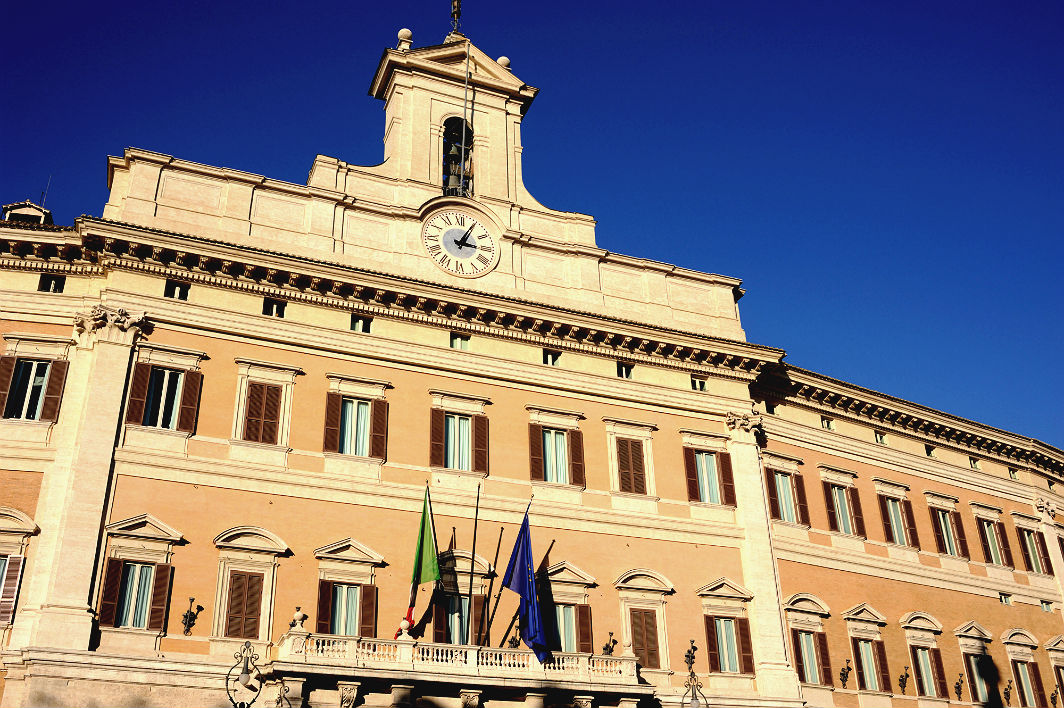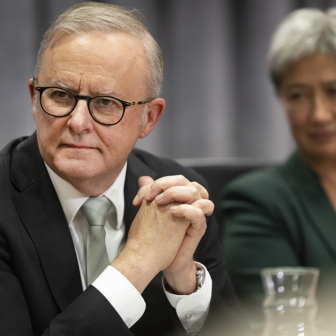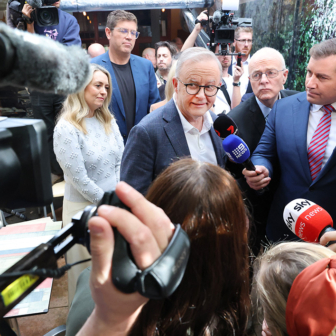Candidates running in the world’s largest electorate face an unusual problem: what can they give potential voters that they don’t already have? Seriously: what can the men and women who want to represent Italy’s Africa-Asia-Antarctica-Oceania electorate, which takes in Australia’s large Italian communities, possibly do for Italian citizens abroad? And, more importantly, what might those citizens need from the Italian state?
The paradox of Italy’s unique system of international electorates has never been more apparent. At a recent English-language debate at RMIT University, the local candidates were struggling to find something to offer; and, just as strikingly, the audience failed to clamour for anything much at all. They were just a few of the roughly 110,000 Australian-based Italians registered to vote in an electorate of around 185,000.
The local right-wing candidate for the Italian Senate, Hong Kong resident Angelo Paratico, said that the time had come to get tough with illegal immigrants in the Mediterranean. The argument might well resonate in Italy, but it seemed a bit remote for those who had assembled in Melbourne’s CBD to hear a lunchtime debate. It was classic stop-the-boats rhetoric, but the boats were landing on the other side of the world.
Paula Marcolin, a second-generation Italian Australian running for the Senate under a vaguely centrist banner, took a different tack. She wants to fight for Italians who have recently migrated to Australia. “They leave Italy and no help is given to them once they leave the country,” she says. What help Rome should provide them with was left undefined.
If the electorate’s incumbent senator, Sydney’s Francesco Giacobbe, has worked out how to escape the conceptual quagmire of making laws that will never apply to those he represents, he doesn’t let on. He speaks glowingly of the economic record of the centre-left governments headed by prime minister Paolo Gentiloni and, before that, Democratic Party leader Matteo Renzi, then moves on to questions closer to home. “Our focus is on promoting things that will benefit Italian communities in the world,” he says, listing three areas of endeavour: the plight of elderly Italians in Australia who require language-appropriate services; the need to support Italian-language information; and the needs of newly arrived Italian migrants.
He knows he’s drawing a long bow — everyone in the audience knows it — but we give him credit for at least trying to make this seem like a normal interaction between elected and electors. But any suggestion that there’s a role for Italy to play in the provision of services in Australia doesn’t stand up to scrutiny. The Australian residents listening today have a Medicare card in their wallet; their educational needs and those of their families are being met by an Australian government of some description; their rubbish is being picked up by an Australian municipal entity; their driver’s licences are issued by the state of Victoria. The candidates assembled here today can offer little because they will never have the power to do so as members of a foreign legislature.
Even the one area in which retired Italian citizens may have a genuine problem with Rome — the prompt delivery of Italian pensions — is actually a low-stakes game. As longstanding contributors to the Australian Tax Office, Italian pensioners in Australia would be rescued in a federal government–funded social security safety net if Rome fails to cough up.
What does that community of postwar arrivals — already being replaced by second- and third-generation Italian citizens — really need? These are people who may have a soft spot for the old country, but don’t have a lot of unfinished business with the Italian state. They arrived here in the fifties and sixties looking for financial security and, largely, they found it. Say what you want about the architectural excesses of the white-columned Italian houses dotting Australia’s outer suburbs, but this is a story of accessed opportunity. The financial stability they claimed for themselves isn’t theoretical; it’s as real as the quarter-acre blocks on which they live. They’ve ticked all the immigrant-dream boxes; they’re doing all right. When they approach Italy, they do it with their heads held high. They’re not looking for help.
As for recent arrivals from Italy — again, it’s a stretch. It’s hard to imagine them either wanting or needing help from Italy. If you’ve met the highly visible new-generation Italian immigrants serving coffees on the streets of Carlton or Leichhardt, you’ll know that they’re highly educated and enterprising, and have good language skills. What’s also obvious is that they’re trying to get as far as they can from contemporary Italy, a society ossified by a lack of opportunity for those without the contacts needed to get ahead in the face of massive youth unemployment. Why would they be expecting Italy to give them a leg up in Australia when the country ignored their plight at home?
Even the suggestion that Italy might have a role to play in helping Melbourne’s community to get a bilingual school off the ground — an issue raised during an occasionally unpleasant question-and-answer with the candidates — is problematic. Do we really want the Italian state dealing with our kids’ education? As a high-school student in Italy in the 1980s I would travel regularly to our provincial capital to demonstrate against the neglect of local schools; my teachers were unmotivated clock-watchers who expected us to rote-learn Latin verbs and not ask questions; the facilities were inadequate. As for Italian universities, they’re over-crowded, badly run and mired in political affiliations and nepotism. Not one of them makes it into top-100 international rankings. This can’t be a world Australia’s Italian community wants to unleash on its young minds.
It doesn’t work — traditional political campaigning within Italy’s international electoral system makes no sense. That’s because it was designed to contain, rather than enhance, the political voice of Italian citizens living abroad. The number of parliamentarians elected — twelve deputies and six senators worldwide — was pulled out of a hat and bears no relationship to the electorates’ sizes. (Worldwide, about 4.3 million Italian citizens are enrolled to vote.)
The system was championed by a politician, the post-fascist Mirko Tremaglia, who assumed all Italians living abroad would share his nostalgia for national socialism — incredibly, a view still shared by most Italians in Italy. Yet the overseas electorates — in reality, a single electorate split into four parts — have consistently favoured the centre left. Indeed, the sprawling electorate built around Australia’s Italian communities has only elected politicians from what is now the centre-left Democratic Party and is likely to do the same this time — in the Senate, at least.
That’s in spite of the extreme difficulty of campaigning in a foreign country without any hope of advancing policies that will have a direct impact on the lives of voters. The only time the RMIT debate emerges from this epistemological vortex is when China-based candidate Nicola Brienza suggests it’s time to ask not what your country — Italy, that is — can do for you, but what you can do for your country. “We are Italians, we hold Italian passports ― Italy needs us,” said Brienza, who is running with the centrist Civica Popolare list, headed by Italy’s health minister, Beatrice Lorenzin. “There is no ‘made in Italy’ anymore — they screwed that up a long time ago,” he said. “It’s now ‘made by Italians.’ And now we can save our relatives.”
The thought of the Italian diaspora returning to Italy to save the country from itself rests on the assumption that Italians would want to be saved by returnees. That’s quite an assumption — although the story of Sergio Marchionne, the Italian-Canadian chief executive officer of Fiat Chrysler who saved the car company from the less inspired generations of its long-time owners, the Agnelli family, is one that holds great fascination for anyone with Italian antecedents. There’s no doubting that Marchionne is one of us: his penchant for wearing daggy jumpers in the land of tailored suits is like using a baseball bat on the heads of those Italians who don’t think much of the diaspora, if they think of it at all.
Whatever your take is on Brienza’s argument — and incumbent Francesco Giacobbe’s exclamation of “bullshit!” suggests he wasn’t a fan — at least it’s pointing to a way forward for Italy’s unhinged international electoral system. With no link between Italy’s legal jurisdiction and those voting for candidates who will travel to Rome, perhaps what’s needed is a political debate that’s truly different, unmoored from the quid-pro-quo politicking, the baby kissing and the visits to shopping malls while tripping over television cables.
It’s a big ask. This would be uncharted territory, and old habits die hard. Even the campaign ads playing on SBS Radio’s Italian program have the tagline “Written and authorised by…,” as if the electoral laws of any country applied to this campaign. The ad could be authorised by the candidate’s family pet — what could Rome possibly do about it? This is a campaign held outside Italian legal jurisdiction.
If Italy is to maintain this flawed electoral system rather than have a simple postal vote for an electorate back home — limited to its own citizens, like Australia’s system — then perhaps the time has come for the campaign to break with convention. Perhaps candidates could go postmodern and talk about politics purely in the abstract, about policies that improve people’s lives not by what they deliver, but by what they signify. In fact, politics without the burden of having to deliver the stuff that has been promised might be the purest form of politics around. As for whether the candidates will rise to the challenge — well, they just need to be reminded how free they actually are. ●




